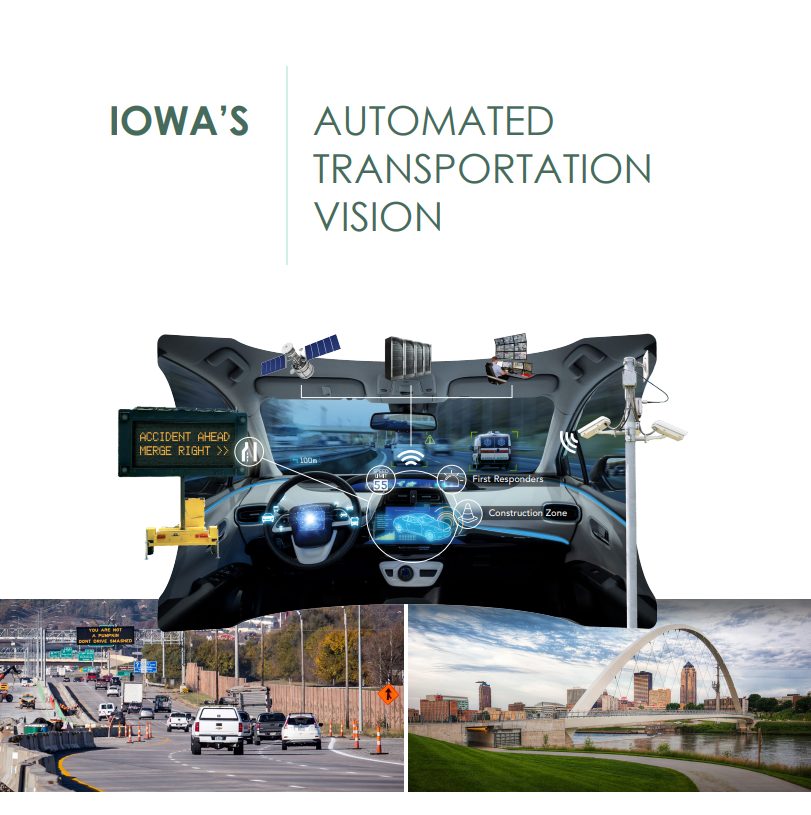PAVE: How is Iowa preparing for AVs? What steps have you already taken?
- The formation of the Iowa Advisory Council on Automated Transportation occurred in July 2018. This broad, statewide stakeholder group is intended to increase roadway safety, personal mobility, and freight movement within the state of Iowa by advancing highly automated vehicle technologies. The Council provides guidance, recommendations, and strategic oversight of automated transportation activities in Iowa.
- In March 2020, the Iowa Advisory Council on Automated Transportation released a Vision document. This effort aligns with the vision and mission of the council by identifying prioritized activities to advance automated transportation in Iowa.
- In November 2019, the Iowa Department of Transportation completed the Cooperative Automated Transportation plan. This plan identifies prioritized activities to support the integration of connected and automated vehicles and other related systems as well as a variety of service and support needs (such as vehicle registration and titling).
- During the 2019 legislative session, two key pieces of legislation were approved and later signed by Iowa Governor, Kim Reynolds, in May 2019 including:
- House File 387, relates to distance requirements for certain motor vehicles following other vehicles. While this legislation doesn’t directly address truck platooning, it opens the door for future legislation and such roadway operations.
- Senate File 302, informally referred to as the AV Framework bill, relates to motor vehicles operated by an automated driving system. The legislation defines automated driving systems and establishes key elements of operation, insurance, accidents, on demand driverless-capable vehicle networks, and does provide broad rulemaking authority to the Iowa Department of Transportation. The Iowa Department of Transportation is currently developing administrative rules for this legislation and is coordinating with the Iowa Advisory Council on Automated Transportation for key stakeholder input.
PAVE: What is the most important thing you’ve learned from your work with AVs?
The safe integration of automated vehicles is complex and will not happen overnight — this journey is a marathon, not a sprint. There is much to do to consistently inform and educate the public on the benefits and capabilities of automated vehicles to gain confidence while ensuring their safe use and operation on the road.
PAVE: What AV tests have taken place in Iowa?
Connected and automated vehicle (CAV) testing in Iowa has primarily focused on research by our partners at the Center for Transportation Research and Education (CTRE) at Iowa State University (ISU) and the Driving Safety Research Institute (DSRI) at the University of Iowa (UI). ISU’s focus is on infrastructure, traffic operations, and data related efforts to support CAV operations on public roads including pavement marking research and work zone initiatives. Conversely, UI conducts various human factors research with their state-of-the-art simulator and on-road automated vehicle testing with their fleet of vehicles.
Read more about the Iowa Department of Transportation and their efforts related to AVs on their website or follow them on social media @IowaDOT.



